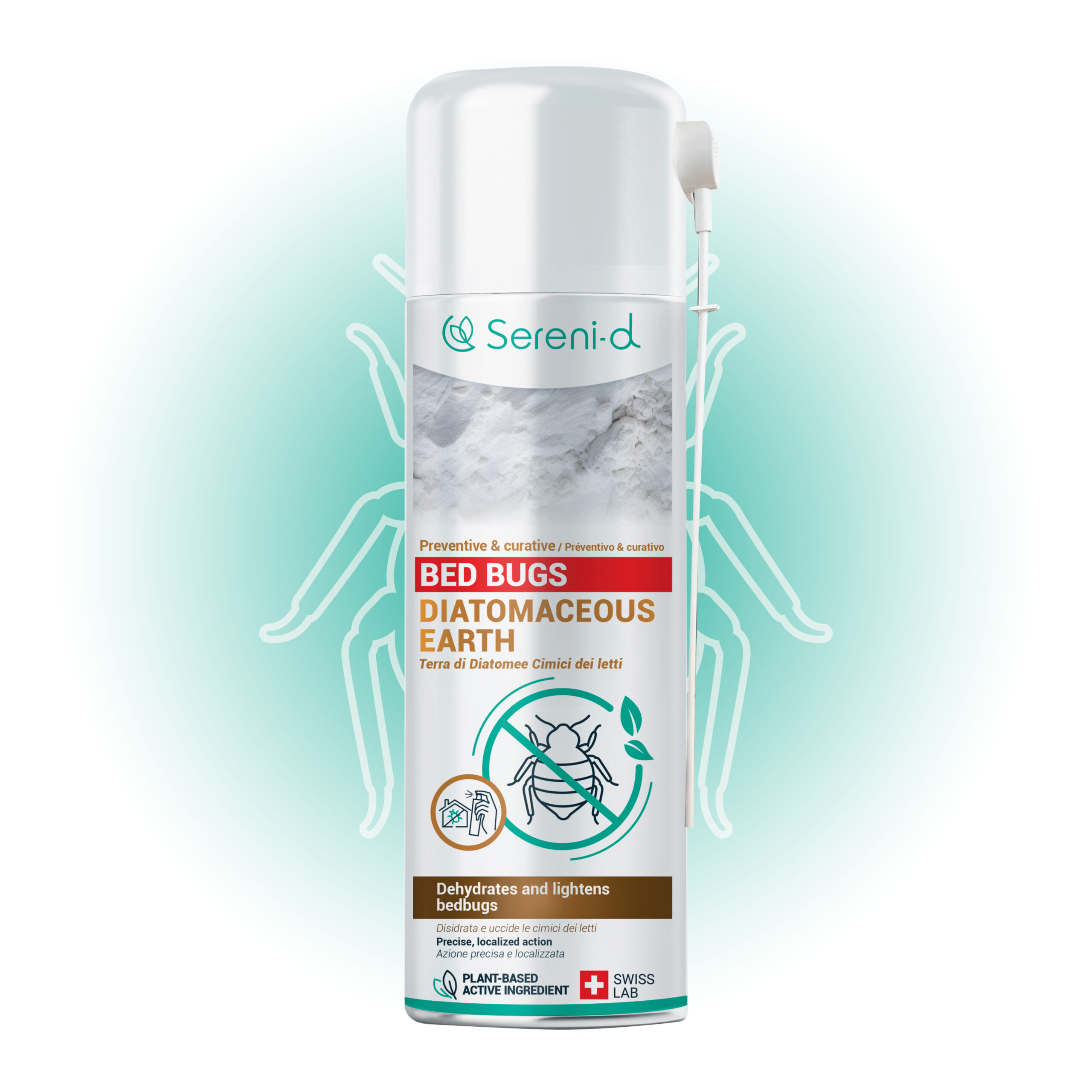There are many good old-fashioned ways of dealing with bed bugs. Among the most common solutions, methylated spirits are considered by many to be a good option. But is it really an effective solution for killing bed bugs? We take stock in this article.
The answer in a nutshell
- Rubbing alcohol is a temporary insecticide, but is not effective in the long term against bed bugs.
- Its use as an insecticide is harmful to your health and dangerous for the safety of your home.
- There are interesting natural alternatives to bed bugs.
Rubbing alcohol: limited effectiveness against bed bugs
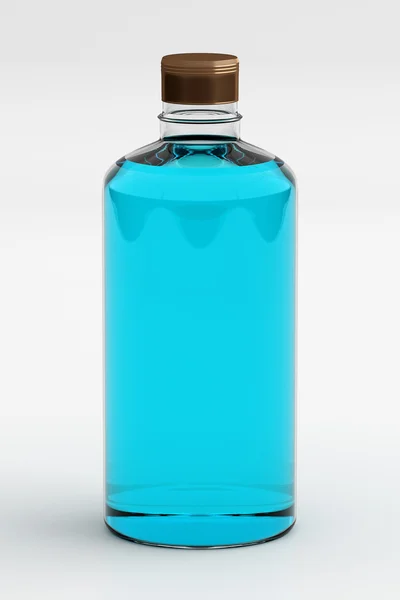
Rubbing alcohol, also known asisopropyl alcohol, is a product commonly used to clean and disinfect various surfaces. It has antimicrobial properties and can kill certain insects when applied directly to them. However, when it comes to bed bugs, its effectiveness is limited.
Household alcohol can kill bed bugs on contact, as it works by drying out their bodies and disrupting their ability to retain moisture. However, bed bugs are generally very small and hide in hard-to-reach places, such as cracks, crevices and mattresses. This makes it difficult to apply methylated spirits directly to all the bed bugs present in an infestation.
What’s more, isopropyl rubbing alcohol evaporates quickly, meaning it loses its effect after a few moments. Bed bugs can move quickly and hide in other places before the alcohol can reach them effectively.
A risk of reinfestation
This type of household alcohol does not kill bed bug eggs. The eggs are resistant and often require specific treatments to eliminate them completely. If you only use isopropyl rubbing alcohol, the eggs may hatch later and the infestation may persist.
Moreover, repeated attempts to eliminate bed bugs with isopropyl alcohol may even make the insects more resistant.
Isopropyl alcohol: risky use as an insecticide
The use of isopropyl alcohol as an insecticide presents significant health and safety risks.
A flammable product and a fire hazard
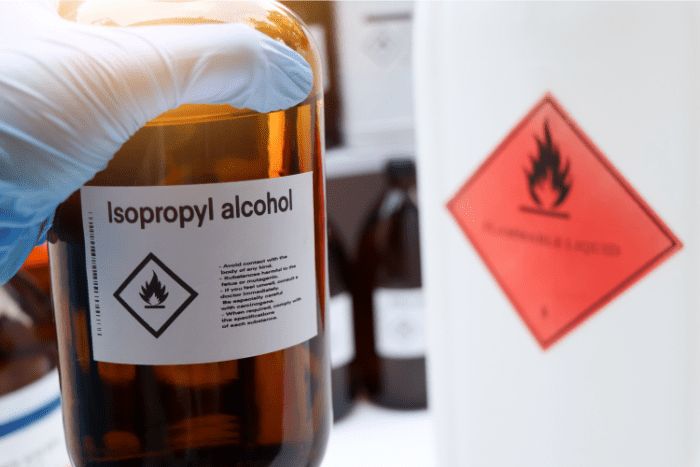
As its name suggests, methylated spirits are flammable and must be used with care. This chemical is extremely volatile and can easily catch fire, especially when used in large quantities in enclosed spaces.
Applying isopropyl alcohol to mattresses, furniture or other areas infested by bed bugs creates a significant fire hazard, especially in the presence of other heat sources, such as cigarettes, candles or electrical appliances.
Be sure to follow safety instructions when using this product.
A toxic product
Rubbing alcohol is also toxic. It contains 5-10% methanol, which is extremely hazardous to health when inhaled, ingested or absorbed through the skin.
When sprayed into a room, alcohol vapors can cause headaches, dizziness, nausea and, in some cases, respiratory problems. Prolonged or repeated exposure can even lead to more serious complications, such as lung damage or poisoning.
Children and frail people are particularly vulnerable to these toxic effects.
Also read: Sniper 1000 EC: a dangerous insecticide
Bonus: 3 natural alternatives against bed bugs
Here are three natural granny alternatives that can help get rid of bed bugs without endangering your health or safety.
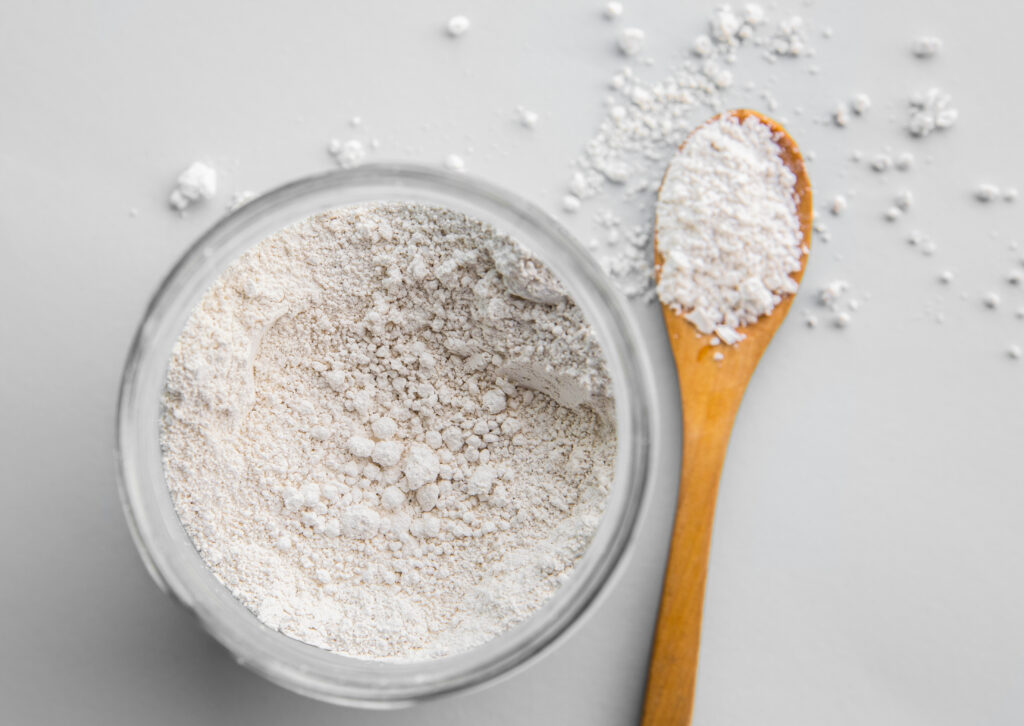
1. Diatomaceous earth
Diatomaceous earth powder is a fine powder made from the microscopic fossils of algae. It’s a natural insecticide often used for bed bug treatment. It works by dehydrating bedbugs when they come into contact with the powder. It destroys their outer shell, drying them out and killing them in a matter of days. To use diatomaceous earth, sprinkle it in infested areas, such as cracks, baseboards and around the bed. It’s safe for humans and animals, provided you use food-grade diatomaceous earth, and it remains effective as long as it’s dry.
Good to know: diatomaceous earth is also effective against bed bugs.
2. Essential oils (lavender and tea tree)
Certain essential oils, such as lavender oil, tea tree oil or clove oil, are renowned for their insecticidal properties. They can be used as natural bed bug repellents. To use them, mix a few drops of essential oil with water in a spray bottle and apply the mixture to infested areas, such as mattresses, sheets and furniture. Lavender oil has a soothing effect and can also help repel bedbugs, while tea tree oil is known for its antimicrobial and insecticidal properties.
However, bear in mind that in the presence of bed bugs, essential oils are not enough to eradicate a complete infestation.
Also read Home remedies for bed bugs
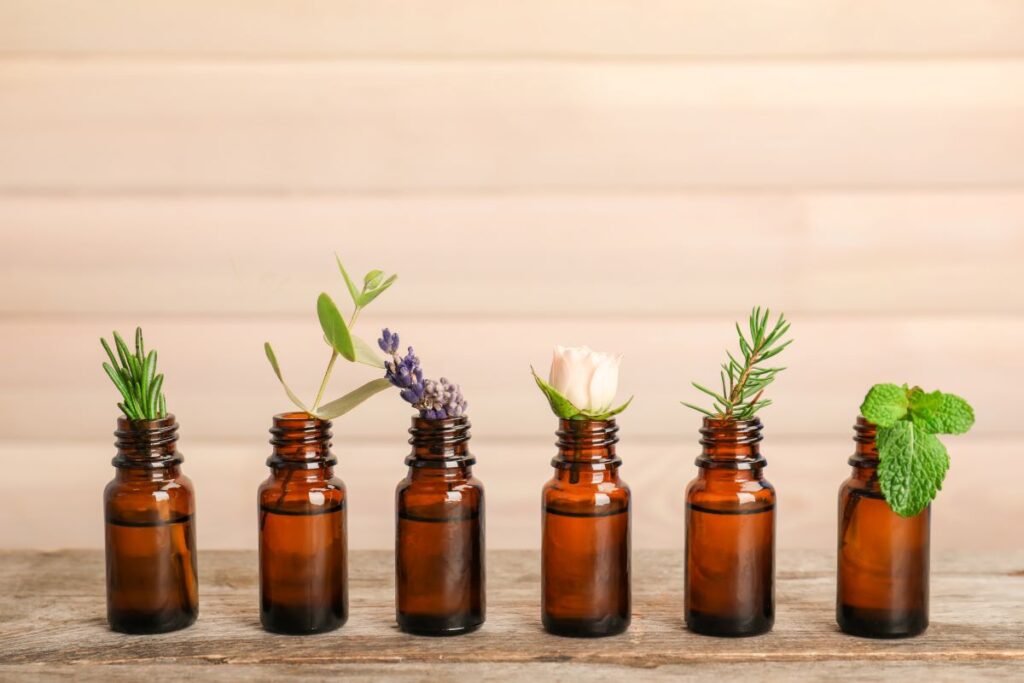
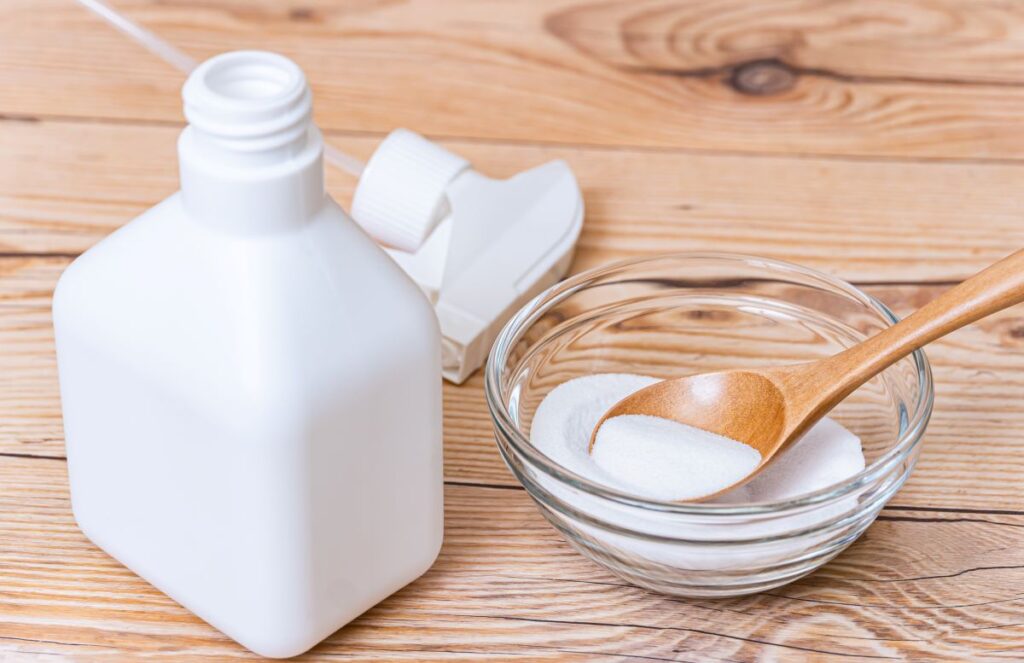
3. Baking soda
Baking soda is another natural solution commonly used to combat bed bugs. It works in a similar way to diatomaceous earth, dehydrating insects in direct contact with it. Sprinkle baking soda in places where bed bugs hide, such as the seams of mattresses, nooks and crannies in furniture and cracks in walls. After a few days, vacuum up the residue and repeat the operation.
To treat bed bugs, we recommend the use of effective, dedicated products such as Sereni-d®. Our range effectively eliminates bed bugs at all stages of development, including eggs. In the event of heavy infestation, you can call in a professional.

